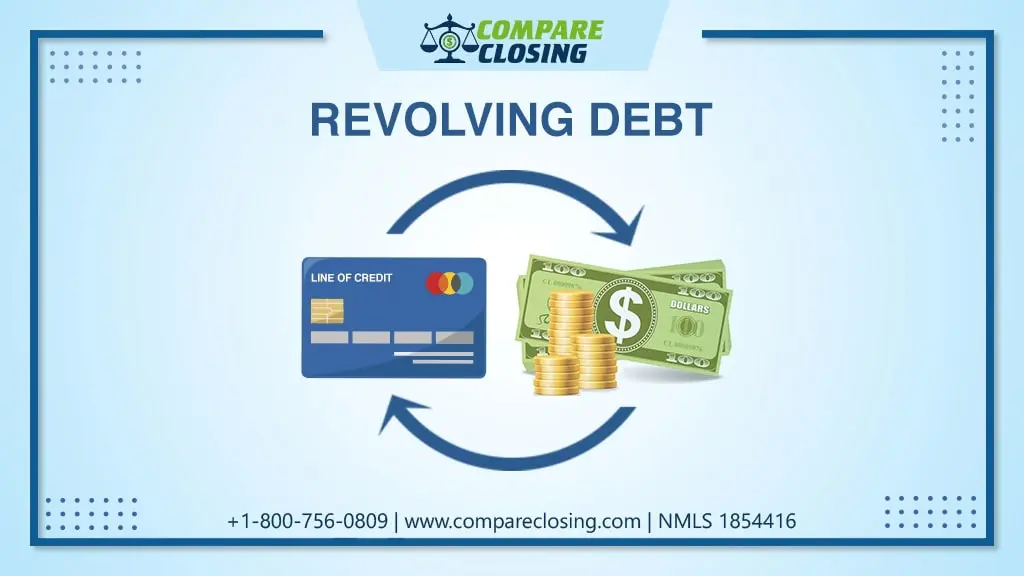
ALL ABOUT REVOLVING DEBT AND HOW DOES IT AFFECT YOUR CREDIT SCORE?
About Revolving Debts
There are many credit products available for consumers depending on their needs and situation.
These credit products are widely bifurcated into two types, installment loans, and revolving debts. Revolving liabilities is a huge market in the country with a market share of trillions of dollars.
In this post, we will learn what is revolving debts and how is it different from installment debts.
Revolving Debt Definition
Revolving debts are debts that do not have fixed payments. The payments are based on the credit that the consumer has utilized.
The most commonly used revolving liability is credit card and home equity line of credit. In this type of debt, the borrower borrows a certain amount of money from the allotted credit and pays only for the amount borrowed with applicable interest.
Hence, the payment is not fixed and the borrower needs to pay every month.
What Is The Difference Between Installment Debts and Revolving Debts?
An installment debt is a debt where the minimum payment does not change every month. In an installment loan, the borrower receives the complete amount in a lump sum once the loan is closed.
In an installment debt, the principal amount is reduced after every payment that you make each month. A mortgage is a perfect example of installment debt.
Usually, in a fixed mortgage, payments remain constant for the tenure of the loan unless you refinance or your interest rate change for some reason. Some more examples of installment loans would be student loans, auto loans, personal loans, etc.
Unlike installment debt, in revolving debt, the principal amount changed based on your withdrawals. For example, your credit card has a limit of five thousand dollars, and you utilize hundred dollars.
Your principal amount is going to be hundred dollars and you pay your payments and interest according to the amount that you have withdrawn. Let’s say you made $25 on your credit and your balance is $75 and you charge your card in the next month for more than $150.
In the next month’s statement, your principal balance would be $225 and you would be making your payment with interest according to this new amount that you have utilized.
How Does Revolving Debt Affect Your Credit?
Revolving liabilities may have a great impact on your credit score. This type of loan falls under both the utilization category and payment history category that is considered by credit reporting agencies.
The payment history category holds up to thirty-five percent of your credit score and credit utilization holds thirty percent. Let’s say that you have a credit card that has a limit of five thousand.
The credit bureaus will check how much credit you utilize from that five thousand every month to determine your credit score under the credit utilization category.
The monthly payment on your debt will change on a month-to-month basis depending on the amount that you utilize from five thousand.
Along with that, they will also check if you are making your payments on the credit card on time with at least the minimum payments.
If you are utilizing this limit of more than thirty percent every month it will harm your credit scores.
If you miss your payment on this credit card or make a payment less than the minimum amount due, your credit score will have a negative impact.
Hence, it is suggested to make your minimum payments on time and keep your credit utilization under thirty percent to make sure your credit score is right up there.
Conclusion
Revolving debt is the best tool to utilize if used smartly. It will not only provide you financial aid when required but making sure you repay it on time will also help increase your credit score in less time.
Many individuals open credit lines just to build their credit score. However, make sure you use your revolving debts responsibly as failing to do so might not just impact your credit score but also lose an opportunity to acquire credit in the future.
